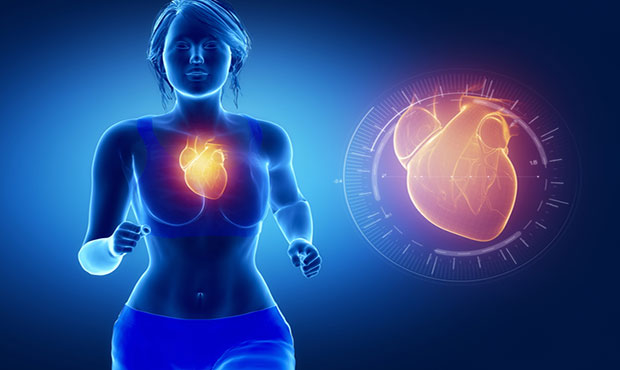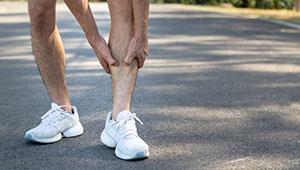
It's no secret that running is a great way to stay in shape. Pounding the pavement, trail or treadmill provides many bodily benefits, including keeping your heart in tip-top condition. We took a deeper look at what running does for your heart and the risks it can pose, too.
A Healthier HeartRunning's impact on the heart has long been studied. In 1985, one study concluded that "Regular runners have slow resting pulse rates and a high maximal oxygen consumption." Echocardiographic studies have also shown that distance runners have "larger, thicker left ventricles and their hearts are more efficient than those of sedentary people, pumping a larger volume per beat." This phenomenon is called "Athlete's Heart," and is a result of intense cardiovascular workouts. No matter the number of miles you log each week, it all adds up to a lower resting heart rate, lower bad cholesterol in your blood and lower blood pressure.
Most of us know that muscles get stronger with exercise. When we exert ourselves, little tears form in our muscles and are then repaired during periods of rest, with muscles coming back stronger than before. Because your heart is a muscle, the same rule applies. Just like your other muscles, your heart needs time to recover. Experts recommend alternating hard runs with easier workouts in order for your heart to grow stronger. But heed this warning: Without that rest, some studies suggest that excessive endurance exercise can actually damage the heart.
Want More Great Stories? Sign Up for Our Newsletter.
Small Amounts of Running Pay OffYou don't need to go out and run thirty miles a week in order to help your heart. In fact, a 2014 study from the Journal of American College of Cardiology found that people who ran just 30 to 59 minutes a week—just a few minutes each day—decreased their risk of cardiovascular death by 58 percent when compared to those who don't run at all.
Studies also show that runners live on average three years longer than people who don't run. And you don't have to be a fast, or even a regular runner, to reap these benefits. If you're looking to add years to your life, running is the answer.
The Risks of RunningWhenever a seemingly fit runner has a cardiac event while running, it makes the news and stokes rumors that running is to blame. The fear of damaging a healthy heart, or finding out too late about a previously undiscovered heart condition, can be enough to make a would-be runner shy away from the sport. But what are the real odds of experiencing cardiac trouble while running?
While there is evidence to suggest that your likelihood of having a sudden cardiac arrest is higher while running, the overall likelihood of this happening is very small. Still, make sure to pay attention to your body while running. If you feel chest pain, shortness of breath or heart palpitations, make sure to stop running and seek medical attention.
- 1
- of
- 2
Get ACTIVE on the Go


Couch to 5K®
The best way to get new runners off the couch and across the finish line of their first 5K.
Available for iOS | Android







Discuss This Article